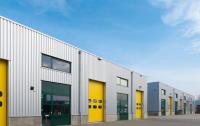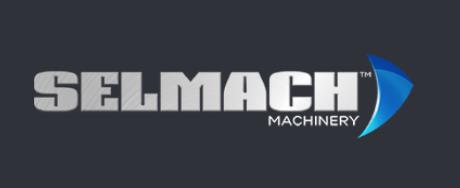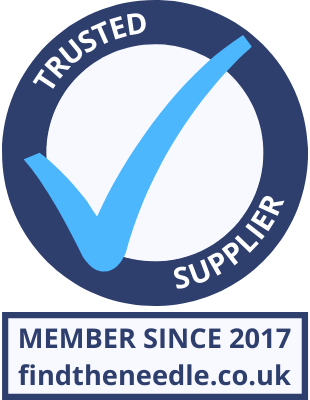 Add My Company
Add My Company
Sign In

Starting up a workshop?
When you’re starting up a workshop for fabrication or manufacturing, there are numerous aspects to consider. We’ve already covered the machinery side of things in this article here. What other elements should you consider though? We’ve tried to break down some of the other key aspects here;
Premises
Material Handling
Electrical Supply
New or used machinery?
Finance
Health & Safety
Premises
One of the most crucial aspects of any new workshop space, is the actual space itself! How much space do you need to get started? What about potential expansion? If it’s a new business, does the space come with room for growth in terms of fabrication space? Or an office space for admin tasks and staff?
Flexibility & Room to grow
While it may be optimistic to think down the line at how much the business may grow, you should consider the potential for growth. If the premises just about fits your needs now, you may find yourself needing to move again quite quickly. Having a bit of breathing room may be more desirable. Especially if your range of projects varies greatly over time.
Storage and handling
Considering what material you’ll typically be working with, is there space overhead for cranes, or lifting equipment to help with material handling? Or space for a forklift if there’s really heavy finished products to lift?
What about storage? Will you need to store large amounts of steel for projects in advance? Is there space to do so where that steel will be undercover, or would it need to be outside, exposed to the elements?
Location, Location, Location
Where is the premises going to be? Is it on an industrial estate, with good access roads and space for lorries and delivery vehicles to come and go easily? Or is it off the beaten track, in a reconfigured agricultural building?
All of these factors are important for the long term suitability of the premises. Moving premises again once established can be a costly and time-consuming process.
Material Handling
Mentioned briefly above, but what options are there for material handling in these premises? Steel becomes extremely heavy when you’re dealing with long lengths of thick tube or bar. Especially if you haven’t got plenty of hands to help lift it! Thinking about the space and moving material around in the premises is therefore crucial.
Is there any existing cranes or gantries for lifting equipment? Or space to lay out roller track systems for easier moving of long pieces of material? Are you going to need to use a forklift truck? If so is there space to get one in and manoeuvre around in one? If using a forklift, a good idea is to leave spaces in between the lengths of roller track for the forks to go through.
For large plate material, forklifts are probably best for speed. Alternatively lifting magnets in conjunction with a crane or gantry is the other approach for lifting these if you haven’t got a forklift.
Electrical Supply
The majority of metalworking machinery that we sell use three-phase electricity. Only a small amount of our smallest machines are available in standard 240v technology. The standard power that you’d find in your home is 240v, or single-phase.
Single-phase is a single alternating current (AC) being drawn through to the machine. This phase comes through in a wave. Growing from zero, to a peak, back down to zero and reaches a peak in the opposite direction. This cycle happens 50 times a second (50hz). As this phase cycles, the power is fluctuating back and forth. This means that the power output is not constant, which can be problematic for large machinery.
Three-phase combats this by having three different cycles, on an offset to ensure that there is always a consistent output of power. The other benefit to three-phase, is that it can carry a higher capacity of amperage. Perfect for the more power-hungry machines that we sell, such as CNC Plasmas or Fibre Lasers.
As you can imagine, this is a question we hear a lot. Why buy a new machine, when there are used options available. When starting out as a new business, or entering the world of fabrication for the first time, cost-saving is a high priority. It’s entirely understandable, and used machinery can seem like a great option.
Buy cheap, buy twice?
Used machines are typically cheaper than a brand-new machine. As anyone who has brought a brand-new car knows, that the moment you leave the showroom it loses some of its value. However unlike a used car, you can never quite be sure of the used machine’s service history!
Some fabricators will take great care for their machinery, keeping it clean and well maintained. Others will potentially take far less care in the machine, and cause damage to it as a result. The other thing to think about, is why are they selling the machine? Have they upgraded to a higher specification? Or is there an issue with the machine, like a bandsaw or guillotine that isn’t cutting square?
So while it might be a cheap initial investment, will it cost more in the long run? Will it keep breaking down, leading to expensive call-outs, and costly down-time? Are the parts for it readily available? If they are available, how expensive are they? Imagine having a machine only to find that some of the wearable components on it will cost you as much again every 12 months!
There’s always an exception to the rule, some machinery may be perfectly suitable to pick up used. Especially if it’s not going to be in constant use, day-in, day-out. Ultimately that’s a decision for the individual business to make. The question is whether you want to trust a used piece of machinery for the main throughput of the business.
Is it really what you want?
One last aspect to think about, is it what you really want? Is the used machine that you’re considering the best option in terms of specification and capacity, or are you considering it because it’s available? Does a used bandsaw have the best capacity for your workload? What about future proofing too? How about additional features, like a hydraulic vice, or bow-return?
We’ve certainly seen instances where customers have grabbed “a bargain” that’s out there on the used market, to come back buying new. They’ve had nothing but problems with the machine, and being used, they’ve had no warranty to fall back on.
With new machinery, you have that reassurance that not only is the machine the exact spec that you want, but that it’s brand new. In the unlikely scenario that you do have issues with it, it will come with a warranty too. Our machinery is backed by a strong office-based Service team, with a team of 7 on-the-road engineers available for help and support.
We can discuss with you whether the specification is correct for your needs, both present and future!
For more information on Starting up a workshop? Consider these factors talk to Selmach Machinery Ltd
Enquire Now
List your company on FindTheNeedle.

